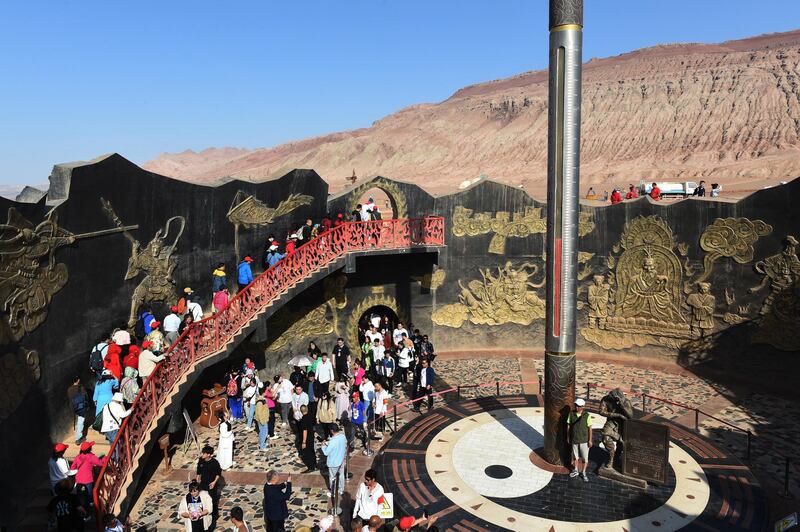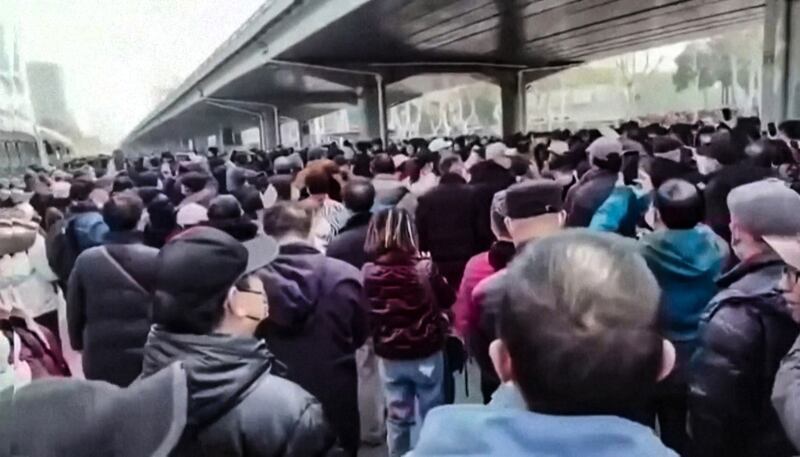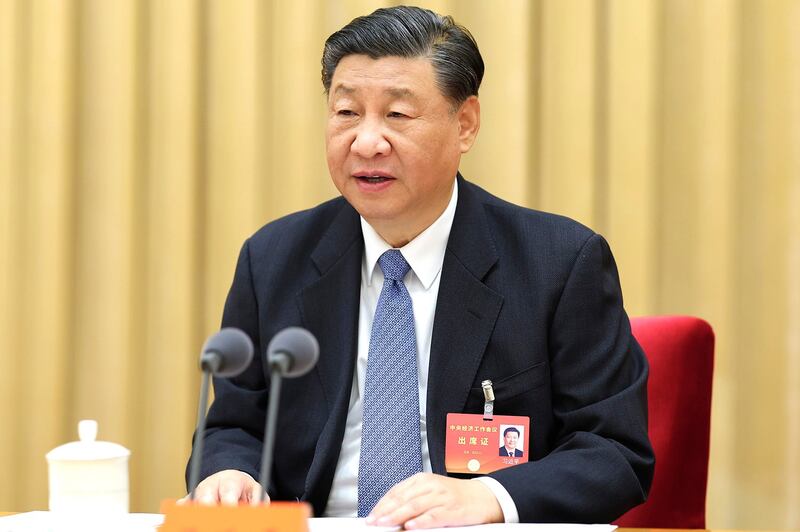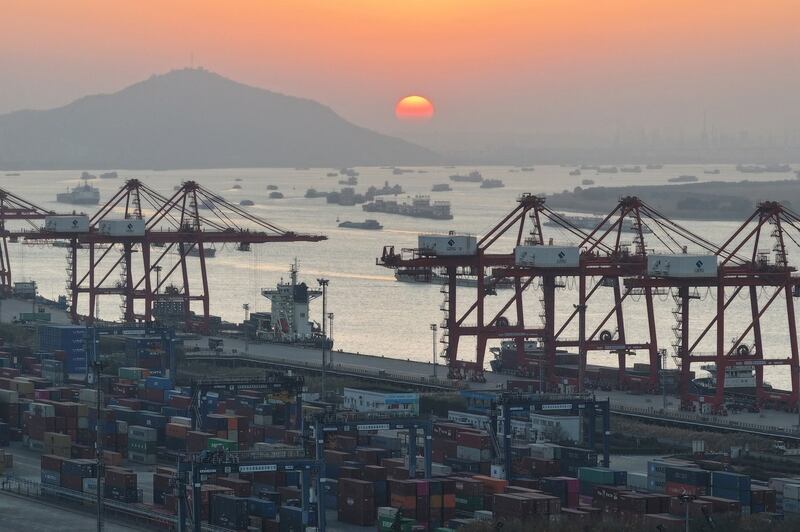The ruling Chinese Communist Party vowed on Tuesday to step up propaganda to mobilize consumers to kickstart China's economic recovery, as analysts warned that an ideological approach to the economy would yield little of substance.
"[We must] step up economic propaganda and public opinion guidance, spreading the idea that there is a bright future for the Chinese economy," the Party's Central Economic Work Conference said in a communiqué issued as it concluded on Tuesday in Beijing.
The propaganda should focus on reviving economic growth following the three years of pandemic restrictions under the zero-COVID policy, said the communiqué, which was published by state news agency Xinhua.
People should be "cultivated" to spend more on smart homes, entertainment and tourism, sporting events and homegrown "trending products," it said.
Households and businesses should also be driven to upgrade their existing equipment through the use of new minimum standards for energy efficiency, vehicle emissions and other regulatory levers, Xinhua reported.

Upbeat articles about the "economic recovery" have already started appearing in official media, with the Global Times lauding the communiqué for confirming that China's economy "has achieved a recovery, with solid progress made in high-quality development in 2023."
"Anyone who truly understands the overall picture of the Chinese economy, without any malicious ideological bias against China, would find it difficult not to be optimistic about its development prospects," the paper said in an editorial on Tuesday.
State broadcaster CCTV reported on Dec. 11 that "The data highlights the surging vitality of China's economic behemoth, cutting through waves and making steady progress," while Xinhua published a special feature titled: "Ten datasets that bear witness to the great achievements of the new era" under the leadership of Xi Jinping.
Falling incomes and insurance coverage
The propaganda drive came as government figures showed that more than 17 million people dropped out of the national medical insurance scheme in 2022, amid rising premiums and copayments and dwindling coverage, as falling household incomes put coverage beyond many residents, especially those from rural areas.
The patchy healthcare cover and dwindling benefits sparked mass "silver" protests by older people in major Chinese cities earlier this year.

Beijing resident Guo Li said many people have seen a sharp drop in their income over the past year or two.
"Many people have seen their income reduced by 20%, 30%, or even halved, so the number paying into the insurance schemes has fallen," Guo said. "Also, a lot of people have lost their jobs, so they don't sign up for medical insurance any more."
"In short, the economic outlook is poor," he said, in comments that the government's new propaganda drive will likely be looking to discourage.
Meanwhile, the Politburo, the ruling party's largest decision-making body, said on Friday that fiscal policy would be kept "flexible, moderate, precise, and effective" to help spur the economic recovery, Reuters reported, suggesting that limited government spending is currently the plan.
Government advisers told Reuters they would recommend economic growth targets for 2024 ranging from 4.5% to 5.5%, with the majority favoring a target of around 5% – the same as this year, it said.
GDP vs 'actual economic growth'
The claims of robust economic health come after ratings agency Moody's issued a downgrade warning on China's credit rating, citing the likely cost of bailing out heavily indebted local governments and state-owned companies, as well as shoring up the embattled real estate sector, would affect economic growth.
"China sets its GDP growth targets in a top-down manner, and they aren't usually directly related to actual economic growth," economist Chen Songxing of Shanghai's Donghua University told Radio Free Asia.
According to Chen, the National Consumer Price Index and Industrial Producer Price Index data both showed negative growth in November, indicating that China is currently experiencing deflation, suggesting that government measures to stimulate consumption have had little effect so far.
But the central bank can't cut interest rates for fear of affecting the exchange rates, prompting capital flight, he said.

Chen said Beijing's plan to save the real estate sector consists of requiring banks to issue unsecured loans, making them carry all of the risk.
"A few days ago, Xi Jinping said in [the official party magazine] Qiushi that the party leads in everything, and the financial and insurance sectors must obey the party," he said. "Politics must trump professionalism, which means they are just postponing the financial crisis that could happen."
'Ideological control'
Current affairs commentator Cai Shenkun said that ideology is making a comeback under Xi as the main driver of government action, leaving behind the economic pragmatism of the economic reform era kicked off by late supreme leader Deng Xiaoping in 1979.
"When politics controls the economy, people can't have confidence in the economy, or in the future," Cai said. "They are trying to turn it around by ... subjecting the economy to ideological control."
"But in the end, this will result in nothing of substance," he said.
He said Xi has made his ideological direction clear, which is to control the economy using Marxist political theory, and bolstering the public sector at the expense of the private sector that once flourished under Deng's economic reforms.
"Ten years after Xi Jinping came to power, the state sector has advanced and the private sector has retreated," Cai said. "Today, China's state-owned enterprises are already behemoths, and they have penetrated into all competitive fields, while private enterprises basically have no way to survive."

Meanwhile, viable private enterprises have long since been infiltrated by the government through the use of party committees and creeping nationalization in the name of "mixed-ownership reforms," he said.
Economic commentator Chen Pokong said in a Dec. 11 commentary for RFA Mandarin that the private sector is being "raided" under Xi's administration, while the zero-COVID restrictions along with Xi's anti-Western rhetoric had frightened off foreign investors.
"The Xi administration has been fanatically anti-American and anti-Western for years," Chen wrote. "It has been building momentum for seclusion, and accelerating the withdrawal of foreign investors."
"It seems that the Xi administration did not realize how serious the consequences would be until today."
Translated with additional reporting by Luisetta Mudie .
